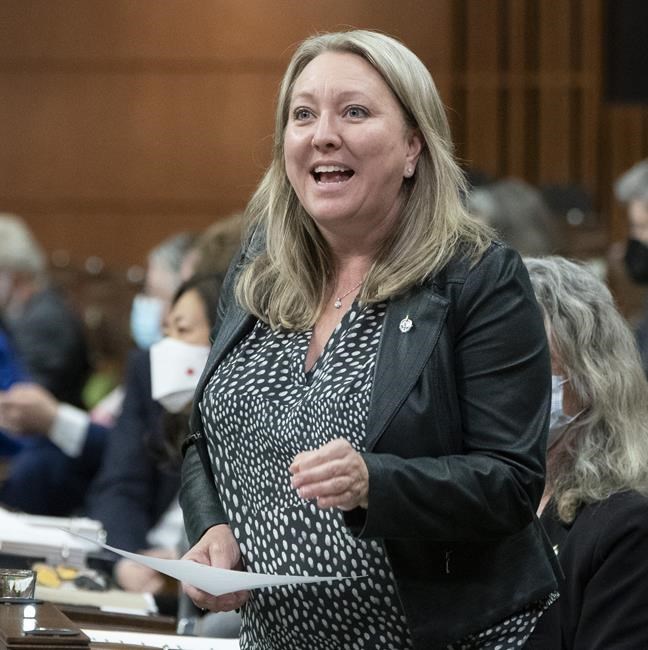OTTAWA — The federal government says it doesn't know how many of its employees are expected to speak an Indigenous language as part of their job, as it faces calls to expand compensation to those who do.
The bilingualism bonus is an extra $800 per year federal employees can receive if they work in a position where it's required they speakEnglish and French, Canada's two official languages.
Some senior public servantssuggestedlast year the government introduce similar pay for Indigenous-language speakers. That was part of internal discussions around how to alleviate concerns raised by some Indigenous federal employees about official language requirements, which The Canadian Press obtained through access-to-information laws.
The Public Service Alliance of Canada has also proposed creating an Indigenous-language allowance. The union has said it's identified nearly 500 federal employees who speak an Indigenous language on the job.
So far, the federal Treasury Board has rejected the idea.
In a response to a question from the federal New Democrats this fall, the Treasury Board of Canada Secretariat says "there is no public service-wide data" about how many employees are expected to speak an Indigenous language as part of their daily responsibilities.
"It points to the fact that providing Indigenous Peoples with services in their language is not a priority for the federal government," said Nunavut New Democrat MP Lori Idlout, who speaks Inuktitut.
"With that being the case, it means that maybe reconciliation is not as important as they say … and there's a lot of work that needs to be done to make sure that reconciliation is realized."
The office of Treasury Board President Mona Fortier said in a statement Thursday that it's working with the union to finalize a study into the use of Indigenous languages in "some departments," adding there's a working group looking at how to incentivize Inuit language for those in Nunavut.
"We are also working with Indigenous employees to address any barriers they may face to learning French and English," wrote press secretary Monica Granados.
She added while the use of the bilingualism bonus will be kept to those proficient in the two official languages, "we are reflecting on other opportunities to recognize, support and enhance Indigenous languages in the public service."
Prime Minister Justin Trudeau has made advancing reconciliation with Indigenous people a major priority for his government, and specified it would work to preserve and promote the use of Indigenous languages.
The Liberals passed legislation with the stated goal of doing so back in 2019.
The law recognized that governments bear responsibility for suppressing and trying to eradicate Indigenous languages through policies like forcing children to attend residential schools, where they were not allowed to speak their mother tongue.
According to the legislation, federal institutions may provide access to services in Indigenous languages "if the institution … has the capacity to do so and there is sufficient demand for access to those services in that language."
Kevin Lewis, a Cree language teacher based in Saskatchewan, said he only recently learned the bilingualism bonus existed, and he believes the federal government would be wise to extend it to Indigenous-language speakers.
Doing so could promote employment opportunities nationally, he said, and incentivize non-Indigenous people to try and learn one.
"The government apologizes and they have been apologizing … an apology is usually followed up by action."
Lewis, who has provided Cree translation services to the federal government, said he believes it should collect data on how many employees use an Indigenous language at work.
"It could be a hiring or recruiting strategy," he said.
This report by The Canadian Press was first published Oct. 13, 2022.
Stephanie Taylor, The Canadian Press




